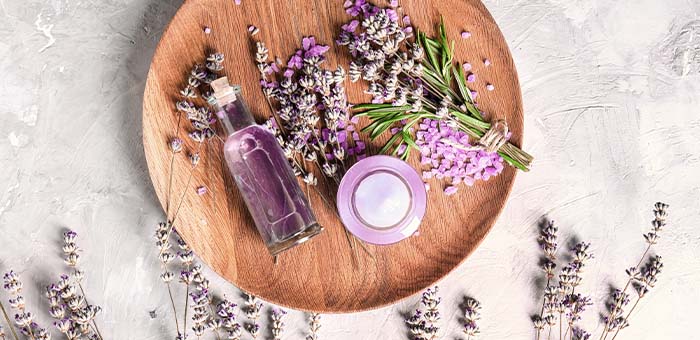Herbs for Mental Health

If you’ve read the blog post on Eating for Mental Health you’ll realise the power that food can have on our mental health. For some people food is not enough and sadly, drug therapies are not always effective and can lead to side effects, dependence, and tolerance. Research suggests that some herbal remedies are as effective as antidepressant medications and have fewer adverse side effects. Here are a few that may be worth considering:
Rhodiola – is a botanical adaptogen that is shown to have anti-stress and antidepressant properties. In contrast to most conventional antidepressants, Rhodiola appears to be well-tolerated with a favourable safety profile (1,2).
Magnolia tea and chamomile tea – alleviate symptoms of depression as well as improving sleep quality in women with postnatal depression (3,4).
St. John’s wort – is one of the most well studied herbs for the treatment of depression. It is found to be as effective as standard antidepressants with fewer adverse side effects (5,6). It does increase photosensitivity so care must be taken when out in sunlight by those taking St John’s Wort.
Other traditional folk medicine herbs that appear to be effective in mitigating anxiety and depression with favourable risk-benefit profiles include Skullcap, Lion’s mane mushroom, Passiflora and Lavender (7,8). They act in similar ways to conventional antidepressants and mood stabilizers and are well tolerated.
Essential Oils
Traditionally, aromatherapy has been used for anxiety relief and mood improvement. In comparison to traditional drugs, essential oils have fewer side effects and a wider range of methods of application eg: Inhalation, oral administration and massage.
More than 20 compounds derived from essential oils have shown anxiolytic (anxiety reducing) effects. The anxiolytic effect of essential oils appears to be through their effect on neurotransmitters including serotonin, dopamine, GABA and noradrenaline, and the hypothalamic-pituitary-adrenal axis (9,10).
Examples of this include geraniol, which has neuroprotective, anti-depressant and anti-inflammatory effects (11). It is found in the essential oils of rose, ginger, lemon, orange and lavender.
Linalool has been found to have sedative, antidepressant, anxiolytic, and immune potentiating effects (12). Linalool is commonly extracted from lavender, rose, basil, and neroli oil.
β-pinene produces an antidepressant-like effect through interaction with the monoaminergic system (12). It is found in rosemary, parsley, dill, basil and rose.
Inhaling lavender oil has been found to decrease depression as well as blood pressure and is thought to be an easy and useful therapy for stress relief. Its mechanism of action may include activation of the central oxytocin neurons (13).
Conclusion
Incorporating herbs into your food and drinks and using essential oils in the bath or in massage oils are easy and safe ways to improve your mood. If your problems are persistent seek the help of a professional.
See blog posts on Nutrients for Mental Health and Lifestyle Tips for Mental Health for further information.
References
1. Phytomedicine. 2016 Jun 15;23(7):770-83. Rhodiola rosea L. as a putative botanical antidepressant. Amsterdam JD et al.
2. Phytomedicine. 2015 Mar 15;22(3):394-9. Rhodiola rosea versus sertraline for major depressive disorder: A randomized placebo-controlled trial. Mao JJ et al.
3. Food Sci Nutr. 2020 Feb 10;8(3):1554-1561. A randomized controlled pilot study of the effectiveness of magnolia tea on alleviating depression in postnatal women. Xue L et al
4. J Adv Nurs. 2016 Feb;72(2):306-15. Effects of an intervention with drinking chamomile tea on sleep quality and depression in sleep disturbed postnatal women: a randomized controlled trial. Shao-Min Chang, Chung-Hey Chen
5. BMJ Open. 2019 Aug 5;9(8):e028527. Complementary therapies for clinical depression: an overview of systematic reviews. Haller H et al.
6. Syst Rev. 2016 Sep 2;5(1):148. A systematic review of St. John’s wort for major depressive disorder. Apaydin EA et al.
7. Nervenarzt. 2018 Sep;89(9):1009-1013. Herbal medicines for psychiatric disorders. Anheyer D et al
8. Antioxidants (Basel). 2020 Mar 12;9(3):234. Potential Antidepressant Effects of Scutellaria baicalensis, Hericium erinaceus and Rhodiola rosea. Limanaqi F et al.
9. J Agric Food Chem. 2019 Dec 18;67(50):13790-13808. Anxiolytic Effect of Essential Oils and Their Constituents: A Review. Zhang N, Yao L.
10. Adv Exp Med Biol. 2020;1260:283-296. Anxiolytic Terpenoids and Aromatherapy for Anxiety and Depression. Agatonovic-Kustrin S et al.
11. Physiol Behav.2015 Dec 1;152(Pt A):264-71. Geraniol produces antidepressant-like effects in a chronic unpredictable mild stress mice model. Xue-Yang Deng et al.
12. Life Sci. 2015 May 1;128:24-9. Linalool and β-pinene exert their antidepressant-like activity through the monoaminergic pathway. Guzman-Gutierrez SL et al.
13. Evid Based Complement Alternat Med. 2020 Jul 14;2020: Lavender Oil Reduces Depressive Mood in Healthy Individuals and Enhances the Activity of Single Oxytocin Neurons of the Hypothalamus Isolated from Mice: A Preliminary Study. Ogata K et al.